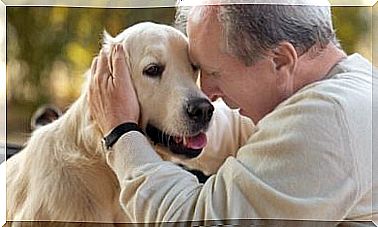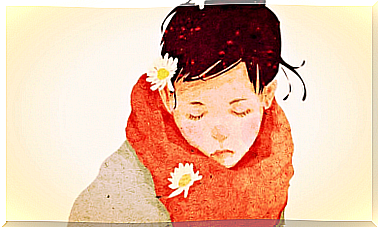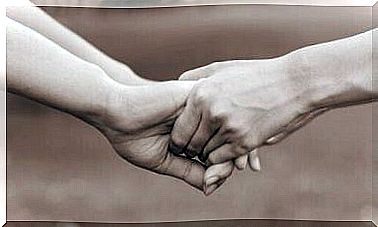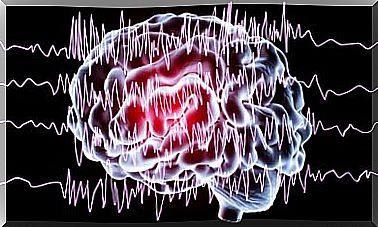OCD Of Love Or Relational: Affection Trapped In Obsessive Doubt

Is my partner attracted to me? Is he the right person or am I wrong? Did my comment bother you? Are you thinking of quitting? Few conditions bring as much suffering and disagreements in the couple as love or relational OCD. It is a type of psychological condition that is appreciated more frequently and that requires greater visibility.
It should be noted that although it is not included (for now) as a category in diagnostic manuals, it is considered a subtype of obsessive-compulsive disorder. The most striking thing is that, in recent years, with the rise of dating applications, social changes and a generation perhaps less mature in the emotional issue, we see this phenomenon more and more.
Factors, such as immediacy, the desperation to receive a quick response to our message, a match to our profile or that daily reinforcement through affectionate emoticons, cause relationships to broadcast on another frequency. Anticipatory anxiety and “ I want it all and I want it now ” abounds in Tinder-era bonding.
If you don’t get that attention and that reinforcement in the second, the mind begins to wander until it creates a painful trap of harmful and obsessive thoughts. Let’s know a little more about this topic.

Love or relational OCD: what it is and what symptoms does it present
We can define love or relational OCD as a subtype of obsessive compulsive disorder (OCD) in which people who suffer from it suffer constant doubts about their relationship. These concerns are focused on different aspects of the bond with the loved one: attraction, compatibility, love, future projection, etc.
Studies regarding this condition are relatively recent. They began to emerge in the first decade of the new millennium and, today, the psychological community is well aware that we are facing a phenomenon with greater incidence. Thus, investigations such as those carried out at the University of Herzliya (Israel) and the University of Minnesota (United States) indicate that we are facing a clearly disabling manifestation of obsessive-compulsive disorder.
Although this reality is receiving more clinical, theoretical and empirical attention, we need to make it socially visible. We must understand that the obsessive concern, the constant doubts and compulsive behaviors do not fall within normal in a relationship. Not only do they bring suffering and problems, we can reach very dangerous extreme situations. Let’s dig a little deeper.
What symptoms does it present?
We know that obsessive-compulsive disorder (OCD) is an anxiety disorder defined by recurrent and persistent ideas that cause restlessness and that are accompanied by repetitive (compulsive) behaviors with which to try to quell the anxiety itself. Now, how does love or relational OCD manifest itself?
- The person worries obsessively about what might happen in the future or what might be happening now.
- He wonders if that is the right person, doubts his feelings. There are days when you think it would be best to leave the relationship, but soon that idea terrifies you and you back down.
- Doubt the other person: “Will he really love me? What if they have someone else in mind?
- Before each intrusive thought, concern or doubt, the person needs some evidence to appease those fears. It is common that they need constant evidence of the affection of the partner. Something that is undoubtedly exhausting.
- They have little resistance to frustration. Hence, they need, for example, messages to be responded to quickly.
- They can spend hours on the Internet researching what a perfect relationship looks like or “how to know that my partner is cheating on me.”
- Endless reflections: they are always questioning the qualities of the couple, something that ends up creating problems and distances.

How is this type of relational OCD treated?
The most complex thing about love or relational OCD is that not all people are aware that this way of living a relationship is not healthy.
Almost without knowing how they get used to doubts, obsessions and seeing how no couple meets their expectations and needs. It is a way of swimming in constant discomfort, in the inability to face your obsessions and the root of the problem: anxiety.
How then to treat these types of conditions? We see it.
Exposure with response prevention (RPE)
The strategy of this type of therapy is to confront each thought, image or idea that the person experiences and that causes anxiety. Once you become aware of them, you must learn to handle them to avoid obsession and the appearance of irrational ideas.
The goal is none other than to voluntarily expose them to the source of concern in order to neutralize and rationalize it.
Cognitive behavioral therapy
Another ideal strategy for love or relational OCD is to teach people to identify and change their intrusive, negative, and obsessive thought patterns.
This approach is also accompanied by initiating them in skills such as problem solving, emotional management and the need to establish more positive habits in their lives.
Acceptance and Commitment Therapy (ACT)
Acceptance and Commitment Therapy (ACT) is gaining momentum in recent years for several reasons. It teaches us that sometimes suffering cannot be completely avoided or reduced, but we can learn to live with it. Thus, an obvious fact in the field of affective relationships is that nothing is certain, we cannot know if that love is the ideal or if it will last forever.
However, we can and must learn to live with that uncertainty. Accepting certain thoughts without anxiety is the best strategy in all cases.
To conclude, the love or relational OCD is a seed that grows with greater force in our society. Fears and uncertainties also permeate the affective sphere. Let’s not hesitate to ask for expert help if we need it.









